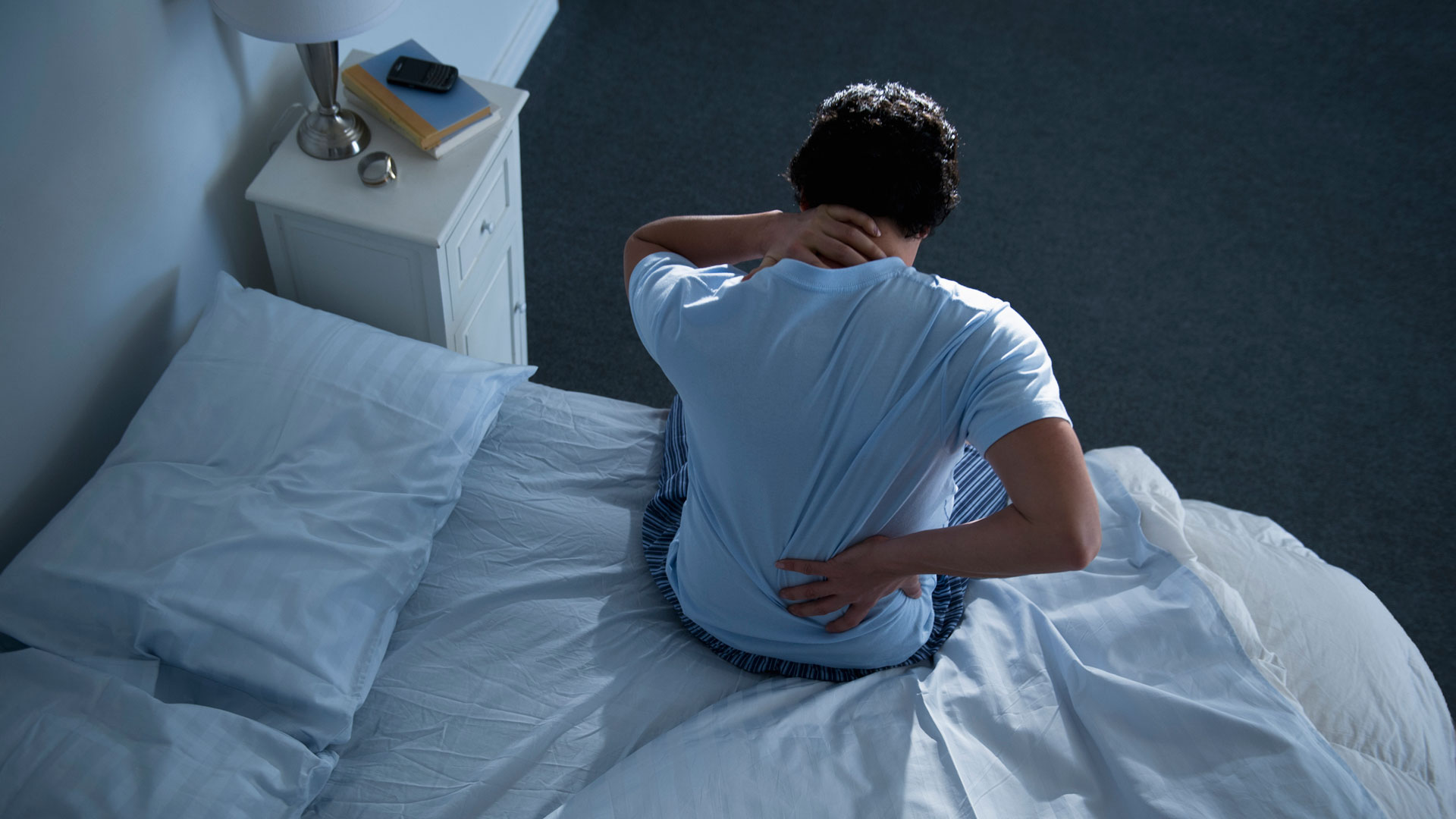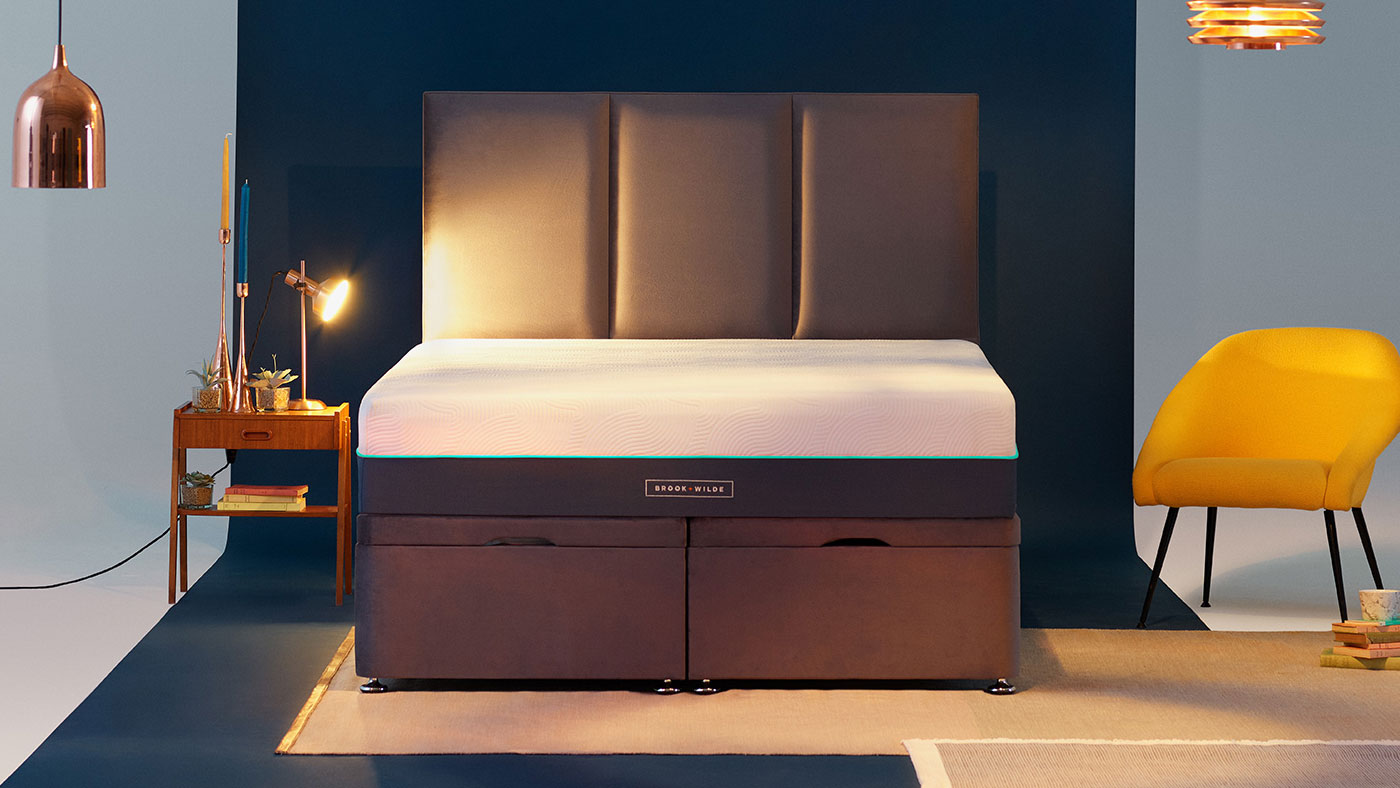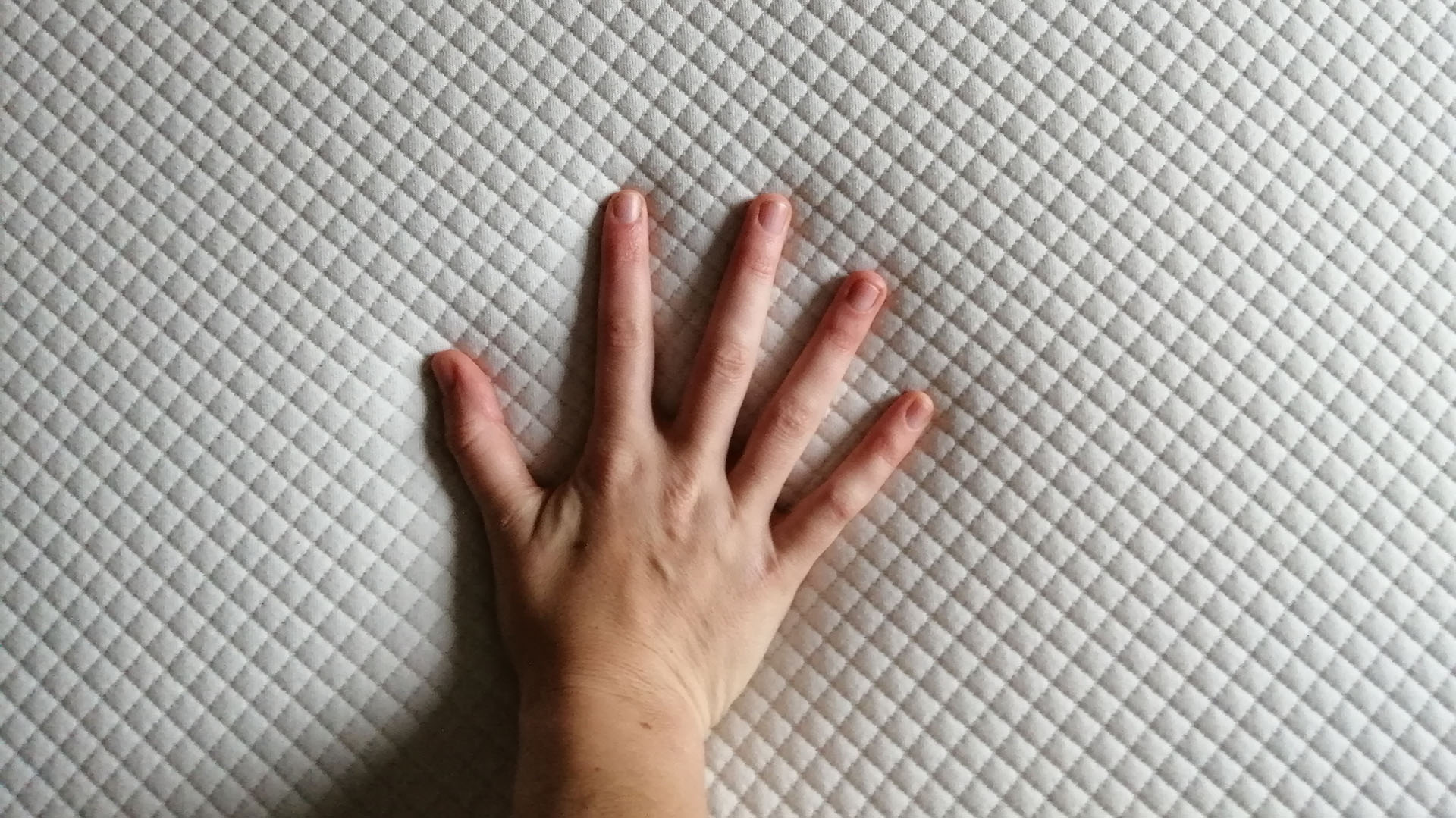
Suffering from back pain? Then it's worth considering whether your bed is making things worse. The wrong kind of mattress can cause your spine to lose its natural alignment, and strain the back muscles that support it. So if you're waking up in the morning feeling unrested, in discomfort or even experiencing pain, it's probably time to consider buying a new one.
For most people, simply replacing an old saggy mattress and getting a taut new one will make a big difference. But you'll get the best results by considering the level of firmness that will suit you best.
In this article, we share advice from the experts on getting the right balance between firm and soft for your back. That way, you'll be able find the best mattress for your needs which, when combined with the best mattress topper, will help you find that ideal sweet spot.
First, though, we should make two important things clear. Firstly, firmness is subjective and there's no universally 'perfect' level of firmness that will suit everyone; so it's very much about finding the right level for you personally. And secondly, even the best mattress won't cure your back pain all by itself. So if you haven't already, it's vital that you see a doctor or osteopath to get your problem examined properly.
Are firm or soft mattresses better for back pain?

Let's start with the obvious question: if you're suffering from back pain, are you better off with a firm or soft bed? Well, we'd love to give you a clear-cut, 100%, always-applicable answer here. But in fact the truth is that everyone's body and sleep patterns are different. So all we can say here is that in general, back pain sufferers tend to get on better with mattresses that are on the firmer side.
"It all depends on the person and it really can vary," says physiotherapist Lyndsay Hirst. "But in my clinical experience, those suffering with back pain tend to prefer a firmer mattress. I've often had patients tell me that when they sleep on a slightly firmer mattress they wake up in less pain. This is more reported in those patients that tend to have back pain due to degenerative changes. I imagine the firmer mattress supports the spinal position more during sleep."
Posture and ergonomics specialist James Crow gives a similar answer. "The general consensus is that medium-firm is better for back pain than soft," he says. "Whilst too-soft doesn't give good support for your spine, too-hard can be painful on the hips and low back, particularly if, like most people, you're a side-sleeper. Most of my clients appreciate a medium-firm mattress."
Frustratingly, anecdotal evidence like this is largely all we have to go on here. As James explains: "There isn't a lot of research to back this up, which is crazy when you consider how important it is."
How do I know if my mattress is too firm or soft?

So if there's no "perfect" level of firmness for back pain sufferers, how do you choose the right one for you? Essentially, you'll have to put some work in, trying out different mattresses, and paying attention to how your body feels when lying on them.
As Lyndsay explains, "You want a mattress that supports your spine and doesn't feel as though you are folding in the middle. If you lie on your side, you want to feel the mattress support your whole body and not feel as though you are sinking in. There should be a light pressure under your body."
James adds that you need to listen to what your body is telling you, and trust your instincts. "You'll get a feel for your mattress being too soft, if you don't feel well supported," he explains. "If you lie on your front and your mattress is too soft, you'll notice the discomfort in the arching of your spine as your chest sinks too deep. As a side-sleeper, the hips will sink too far into the mattress, and back-sleepers won't get the strong support their spine needs."
In short, feeling either curved or sinking in are big red flags to avoid. On the other hand, if your mattress is too firm, you'll feel uncomfortable and find it hard to fall asleep.
"Hip pain and lower back pain can occur if the hips aren't cupped well by a mattress that's too firm," explains James. "Think about your mattress. Does it provide good regular support for the whole body? Or do you sink into it more than you'd like because it's too soft? Or do you get hip pain where it's too firm? You can test the firmness by lying on your back and sliding your hand behind the small of your back. Big gap? Too firm for you! Hand getting swamped by the mattress? Too soft!"
In short, if you don't love your mattress, then it isn't the bedtime buddy you deserve. As James says: "Time to ditch that loser and move on!"
Does a heavier person need a firmer mattress?
Another rule of thumb is that if you're heaver than average, your body will need more support, so you'll probably be more comfortable on a firmer mattress. Conversely, people who are lighter than average will generally prefer a mattress that's on the softer side.
"It's generally better for heavier people to have firmer mattresses in order to provide the support they need," says James. "But be sure to move around, because the firmness can add pressure to bony areas, causing numbness or pain."
Are foam mattresses better for back pain?

Firmness is, however, only one factor in choosing the right mattress for your back. Another is what the mattress is made of.
While mattresses at the premium end are getting increasingly sophisticated in their construction, at the value end of the market, it's still broadly a choice between springs and memory foam. So which of these is better for back pain sufferers?
James feels that memory foam is generally a safer bet. "The soft foam is great for shaping to your body and spreading the load," he explains. "If you're a side-sleeper, the hips are gently supported more comfortably than without foam. Back-sleepers are well cushioned too, although front-sleepers will need to account for their face pressing onto the foam, by using a thinner pillow."
That said, in practice many people dislike the feel of foam, and so it's not always the perfect choice. "It really comes down to personal preference," says Lyndsay. "I have lots of patients that prefer a foam mattress, and found that they do sleep better. On the other hand, I've also had patients who've tried foam mattresses and found they weren't great for their back."
Again, then, some trial and error is usually going to be necessary. And you might find that a more expensive hybrid mattress, like the Simba Hybrid Luxe, may be a better option by offering the best of both worlds.
What other factors should you look for in a mattress?
So far, we've covered two factors you need to take into account when buying a mattress: firmness and construction. But there are many more.
"You'll be looking for good air circulation, especially if you tend to run hot at night," says James. "Remember mattresses come in all sorts of depths. Treat yourself to a mattress protector to keep it clean, and spoil yourself with some lovely new sheets; the softer, the better. Be sure to flip or rotate your mattress every few weeks, to keep it bouncy."
More generally, James believes you should consider ditching your mattress for a newer model after around eight years, and spend as much as you can on it. "Let's face it, most of us spend a third of our day in bed… so why would you want to skimp on quality when it's such a large part of your day?" he reasons. "When you consider how much more you spend on your computer, car, TV and clothes, investing in a good mattress is a no-brainer." As an example, the DreamCloud Luxury Hybrid Mattress might cost a fair bit, but our reviewer found it offers superb comfort and support for back and side sleepers who favour a medium-firm mattress.
One final point to consider is overall size, especially if you're a tall person. "Make sure you – and your partner if you share – fit comfortably in the bed, with plenty of room to move around and change position," Lyndsay recommends. "Also, if you're a side sleeper, ensure you'll have room to place a pillow between your knees, if that’s how you prefer to sleep."
It's all a lot to take into account, and you may not always get it right, because it can take a while for a new mattress to settle in. However, lots of companies now allow you to try a mattress for weeks or even months before committing. So take advantage of these free trial offers, and make the time and effort to get the right mattress for you. Your spine will thank you in the long term!







